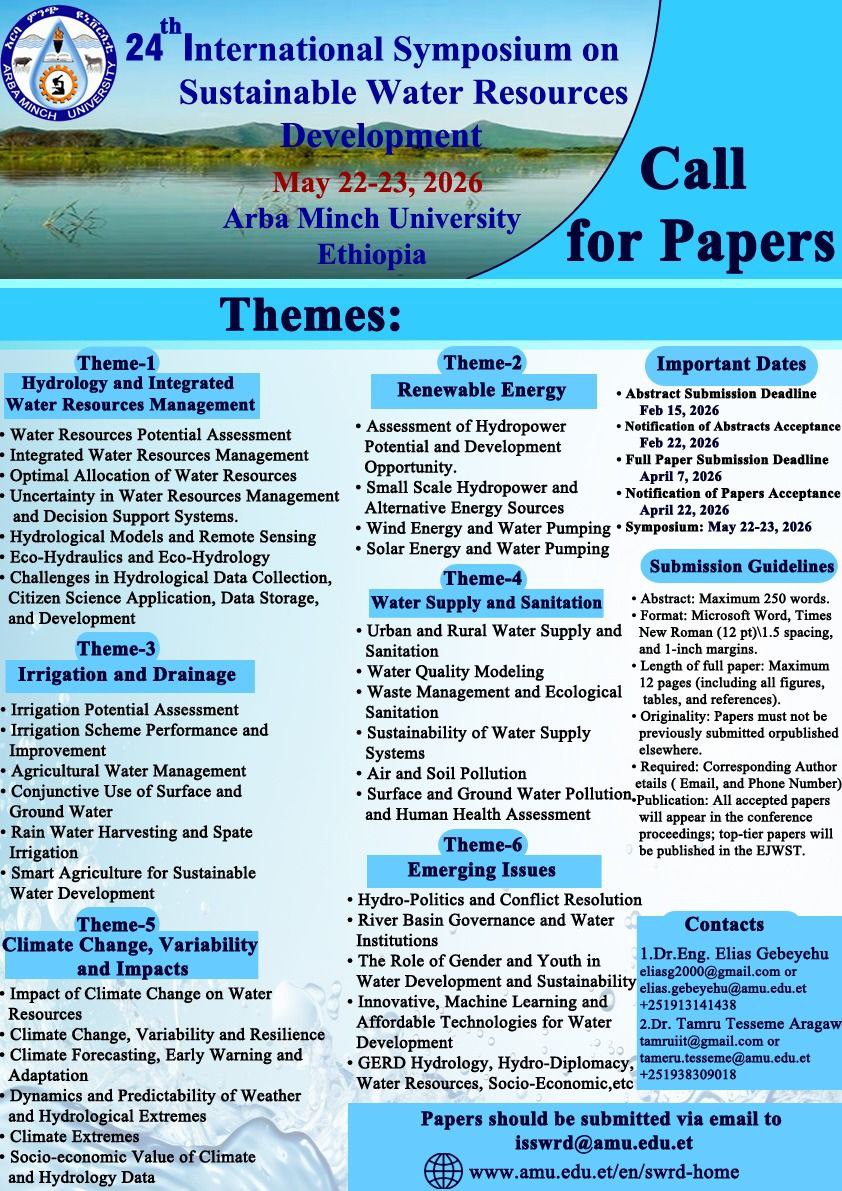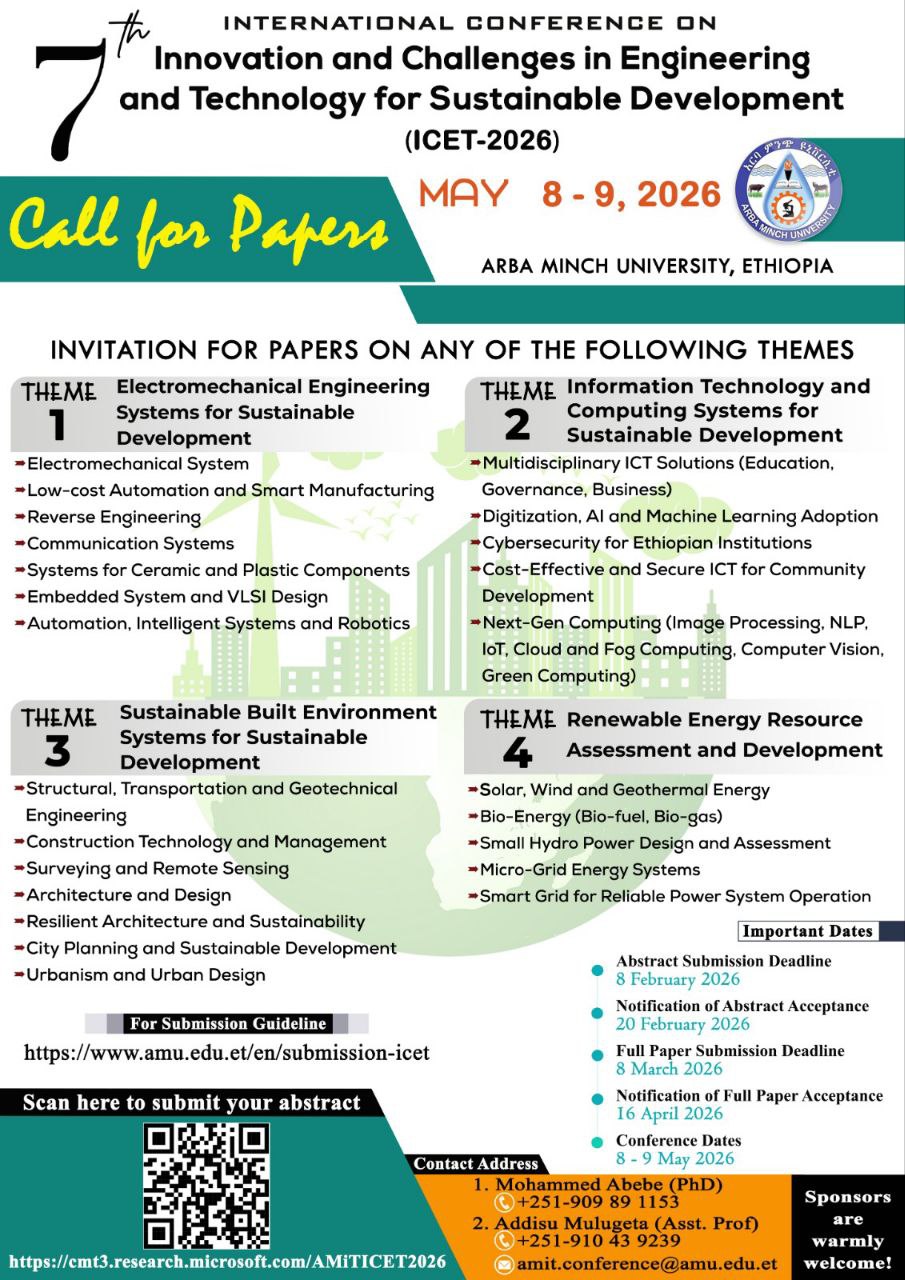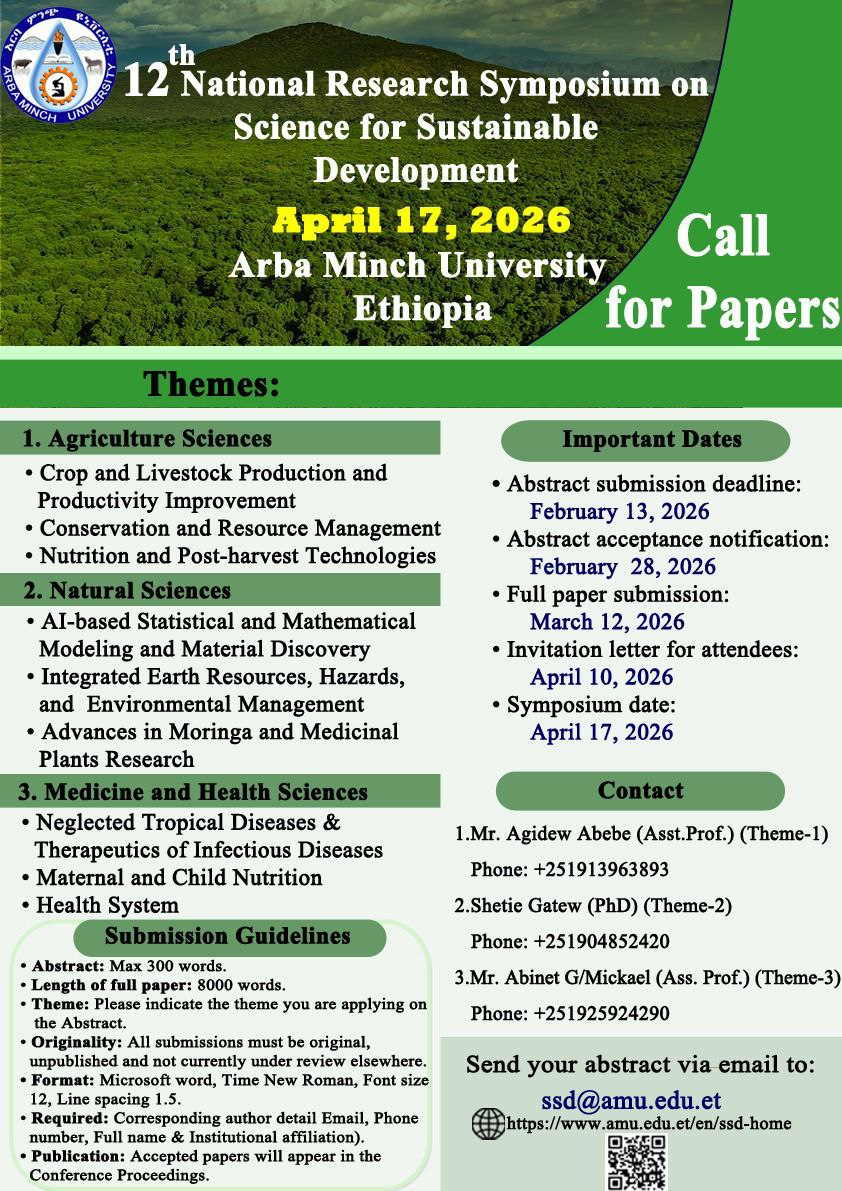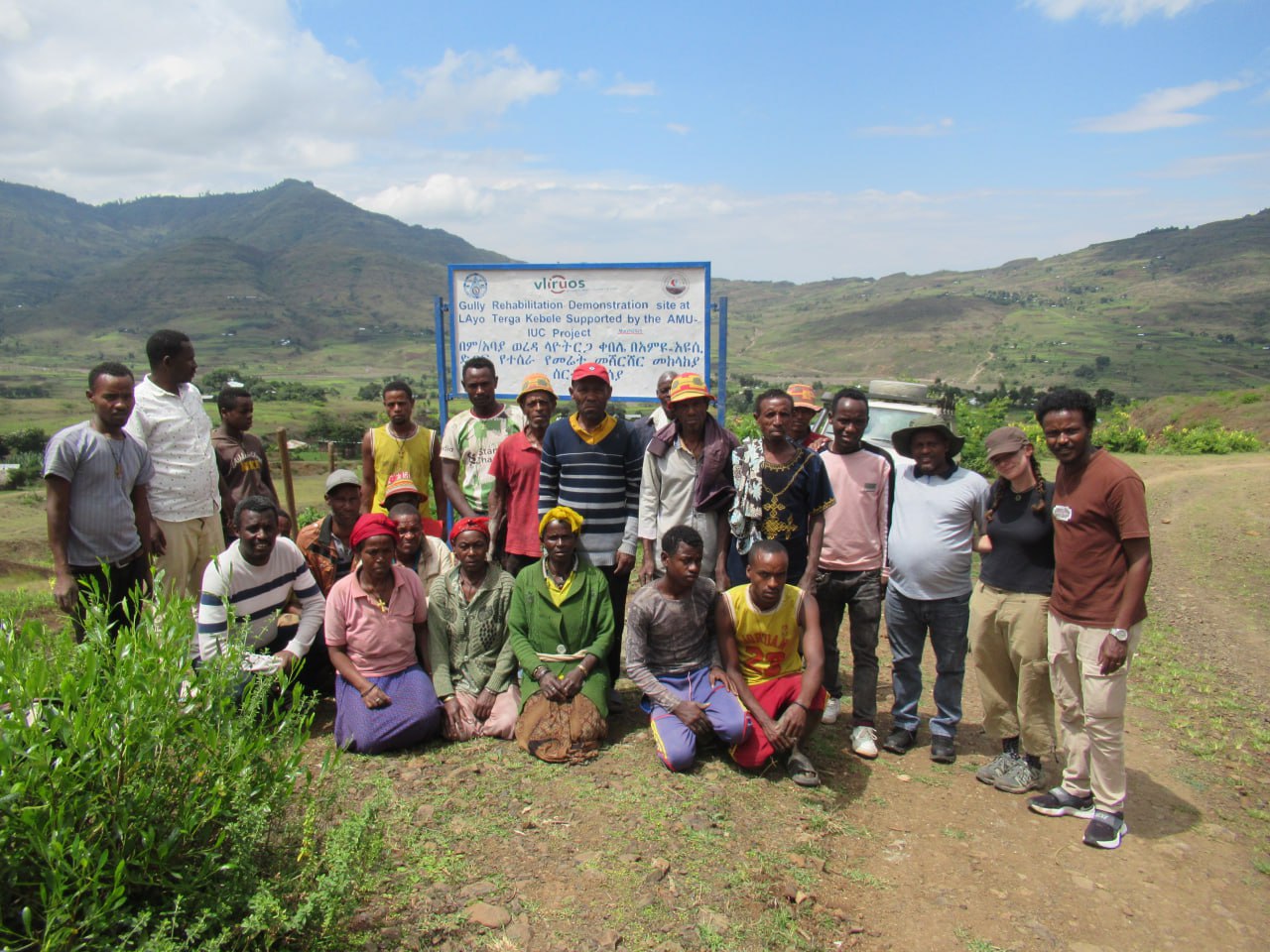Arba Minch University–Institutional University Cooperation (AMU-IUC) Sub-Project IV hosted a workshop entitled “Gully Rehabilitation for Integrated Sustainable Land Management” and focused on gully rehabilitation; it was aimed to translate academic research into actionable, community-driven solutions at the Shafe catchment in the Lake Abaya sub-basin at demonstration site in the Layo Terga Kebele and held on August 29, 2025. Click here to see more photos.
Liuelsegad Belayneh (PhD), workshop coordinator, outlined the project’s objectives emphasizing the core commitment to sustainable practices and community engagement. Providing the critical context, he said that studies have identified the Shafe catchment as one of the most severely degraded areas with gully erosion dissecting the landscape, threatening agriculture and accelerating sedimentation in Lake Abaya since 2019. In response to this urgency, the sub-project implemented model integrated conservation measures utilizing drone-based monitoring to track progress, Dr. Liuelsegad elaborated. Highlighting on the remarkable results visible at the demonstration site, he underscored that these approaches are designed for farmers to replicate in their own fields because sustainability and community ownership are key to broader scaling.
Mr. Gezahegn Gambura, a delegate for Natural Resources Development Sector of the Mirab Abaya Woreda Agricultural Office, complimented the transformative results achieved in less than six months by effective blending of scientific methods with traditional practices which enhanced knowledge transfer empowering the local community. Farmers are now better able to adopt cost-effective soil conservation measures and use their land more sustainably, he stated.
The Layo Terga Kebele gully rehabilitation demonstration site stands as a testament to the power of collaborative development. It showcases a viable model where academic research, government support, and community engagement converge to create sustainable solutions to pressing environmental challenges offering hope and a blueprint for other vulnerable regions. The initiative is supported by the AMU-IUC Sub-Project IV, Reducing Land Degradation through and for Sustainable Rural Land Use in the South Ethiopia Rift Valley, serving as a model for combating land degradation and improving community livelihoods.
Project members, agricultural experts, and local farmers came together to review progress, discuss tangible benefits and strategize for the future in the workshop.
For more Information Follow us on:-
Website - https://www.amu.edu.et/
Telegram - https://t.me/arbaminch_university
Facebook - https://www.facebook.com/ArbaMinchUniversityccd/
YouTube - https://www.youtube.com/channel/UCOO_nclhMo8M3r74OyPBlVA
Public and International Relations Executive





